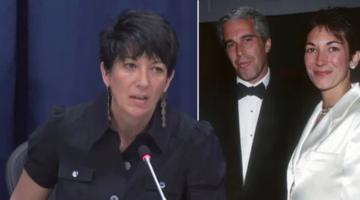Universities have become today’s companies and our cities their company towns.
‘We are witnessing higher education’s growing control over the economic development and political governance of urban life.”
In this series, we ask acclaimed authors to answer five questions about their book. This week’s featured author is Davarian Baldwin. Baldwin is The Paul E. Raether Distinguished Professor of American Studies and founding director of the Smart Cities Lab at Trinity College. His book is In the Shadow of the Ivory Tower: How Universities Are Plundering Our Cities.
Roberto Sirvent: How can your book help BAR readers understand the current political and social climate?
Davarian Baldwin: Right before our eyes, colleges, universities and their medical centers have become the biggest employers, real estate holders, health care providers and even policing agents in both major cities and college towns all across the country. Universities have become today’s companies and our cities their company towns. And there is a cost to those who live in the shadow of these ivory towers. What this really means is that the very notion of the ivory tower is dead. Campuses are now the battle ground for the most pressing issues facing our increasingly urban experience—from living wages, neighborhood displacement, and healthcare for all to democratic citizenship, wealth redistribution, and police abolition.
We are witnessing higher education’s growing control over the economic development and political governance of urban life—or what I call the rise of UniverCities. And it is largely working-class neighborhoods and communities of color that stand in the immediate path of campus growth. These neighborhoods are in the deepest need of new investments, but they are left the most vulnerable. As universities expand, they face rising housing costs or even displacement. Many of the same Black and Brown urbanites also toil in the low-wage sectors of university labor where higher education’s market dominance sets the wage ceiling for all city workers. And these same people often endure racial profiling or even violence as campus police secure more blocks for the university’s economic interests.
“Campuses are now the battle ground for the most pressing issues facing our increasingly urban experience.”
We might understand this as the late stage of racial capitalism when surplus is continually extracted from Black and Brown people and neighborhoods on the terms of racial disparity in wage levels, land values, and security threat. But these communities are simply the first to experience the consequences of this entangled relationship between higher education and urban life. The growing influence of these schools on entire cities solidifies higher education’s authority over the political and economic terrain for everyone living urban America.
What do you hope activists and community organizers will take away from reading your book?
I want them to see how any political vision of broad social transformation must come to terms with the increasingly comprehensive power of higher education. We have entered what some are calling the “knowledge economy,” where colleges and universities are central. Here academic research is used to create profitable commercial goods and patents in a range of fields from pharmaceuticals and software industries to military defense weaponry. Key to recruiting the best students, faculty and researchers to do this knowledge work is creating urbane clusters of housing, retail, and recreation. And these variously called innovation districts or knowledge communities generate wealth that is both directly and indirectly extracted from the Black and Brown neighborhoods where they sit.
Confronting this knowledge economy dynamic is essential for building a transformative political vision that goes far beyond the college campus. In the name of “educational purposes,” higher education produces for-profit research that generates millions in royalties on land that remains largely tax-exempt. This is millions in property taxes that would go to public schools, road maintenance, and with Texas in mind, improving the electrical grid. Most of the increasingly Black and Brown employees on these campuses receive less than a living wage and work on a nine-month schedule which leaves their families without health benefits during summers. And then, coming and going to predominately white schools they face racial profiling in the name of “campus safety.” To assuage the fears of white parents many cities afford armed private campus police jurisdiction over the entire municipality or wherever there is a campus building. Yet they are not subject to Freedom of Information laws. This means that these armed private security forces have public authority with no public oversight.
I hope this focus on higher education can help reframe what may be seen as discrete struggles over policing, gentrification, economic resources etc. as part of a systemic approach to domination in today’s racialized political economy. Our opposition must be just as comprehensive and at the same time just as targeted.
We know readers will learn a lot from your book, but what do you hope readers will un-learn? In other words, is there a particular ideology you’re hoping to dismantle?
Higher education has become this rapacious wealth machine based on our presumption that it serves a “public good.” This status is most clearly marked by its tax-exempt status as a non-profit. But such status is precisely what allows for an easier transfer of public dollars into higher education’s for-profit developments. This status prevents us from seeing graduate students as workers or even confronting that the biggest campus workforce is the exploited low-wage workforce. The idea of higher education as a public good allows their medical centers to retain tax-exempt status while they ramp up profitable cancer research centers and scale back on indigent care. This status suggests that an increased campus police presence is about public safety and not protecting the university brand. And then we witness a two-tiered policing system where a student and resident commit the same infraction, but the former is sent to the Dean while the later goes through the criminal justice system.
Finally, this public good presumption encourages people to ask me why I am offering this analysis of the “institution” that employs me. But would we say the same thing to a worker on a factory shop floor? First, the university is my workplace and I believe it is my right to fight for better conditions for all workers. Second, it is higher education that takes the most pride in solving the most difficult problems faced by the world. Why wouldn’t they confront the critical problems in their own back yard. For so long universities have been places that encourage the pursuit of knowledge. But at the same time, school administrators don’t want their actions known. So we must unlearn the quaint notion of the university as a schoolhouse when teaching classes has become a minor side business.
Who are the intellectual heroes that inspire your work?
The intellectual heroes for this work are those who delved into the seemingly benign or quotidian aspects of everyday life to uncover expansive visions of domination and, by extension, pathways to liberation. I think here of C.L.R. James’ treatment of cricket to explore anti-colonial possibility, W.E.B. DuBois’ examination of the “sorrow songs” to highlight the smallness of U.S. democratic principles, or Toni Morrison’s brilliant “playing in the dark” to reveal the whiteness of the Western literary canon.
But within the direct intersection of higher education and political economy, scholars like Arnold Hirsch, Harley Etienne, Roderick Ferguson, Neha Vora, Sandy Grande all certainly lit a path. I had known the great urban planner and planning scholar Henry Louis Taylor Jr. for years but it wasn’t until working on this project that he had offered a prophetic vision of the “campus as a commons” back in the 1980s but that was quickly rejected by his University of Buffalo administrators. And his work of course demands that I acknowledge all of the amazing student and community activists from the 1960s campus movements as also intellectual heroes. Their push back against gymnasium gentrification at Columbia, the fight for open admissions at Brooklyn College and CUNY, and the transformation of Crane Junior College into Malcolm X Community College are all projects that leave us with an amazing infrastructure for a “different way.”
In what way does your book help us imagine new worlds?
The 1960’s fights for free tuition, open admissions and open campuses, courses for incarcerated residents, and unarmed, Black-controlled public safety all remain an archive of possibility. Today’s calls for an Abolitionist University sit on that foundation. But as I traveled across North America most residents wanted the university in their lives for its resources, innovations and capacity to bring people together and draw investment. But what they kept saying to me is that there needs to be protections to ensure “development without displacement.” Residents and students are increasingly understanding that the billion-dollar endowments and shiny new laboratories were built on wealth extracted from the neighborhoods where schools sit.
The problem is that we must force higher education to shift its mission from a profit university to a people’s university. Campuses must be fully embedded within neighborhoods and governed by their broader communities. And another world is certainly possible if we reclaim Henry Taylor’s notion of the campus as a commons. All residents must have access to the campus, especially any school that receives public dollars or tax-abatements, which they all do, even private ones. Currently, some schools offer voluntary Payments in Lieu of Taxes (PILOTs), which are still only a fraction of the dollars schools would pay if their properties were fully assessed. Let’s make them mandatory. We must tie a Community Benefits Agreement to any campus development with area code specific jobs, job training, resources, programs etc. Let’s make sure revenues from profit-generating sports, built on the backs of Black and Brown students, are funneled into these neighborhoods.
Finally, I spent some time in Buffalo and Winnipeg, Canada. Neither place is perfect, but Buffalo activists are building out community land trusts to curtail price inflation and keep development in the hands of residents. While UWinnipeg’s Jim Silver broke off from the main campus to lead his own facility in the heart of the Indigenous North End with a combination of educational services, rent-geared-to income housing and childcare, and culturally relevant elder counseling. These examples all show how the materials from our current existence can be reconstructed to build a better world. I hope my book helps connect all of these individual projects into a wider vision of possibility.
Roberto Sirvent is editor of the Black Agenda Report Book Forum.
COMMENTS?
Please join the conversation on Black Agenda Report's Facebook page at http://facebook.com/blackagendareport
Or, you can comment by emailing us at comments@blackagendareport.com



















